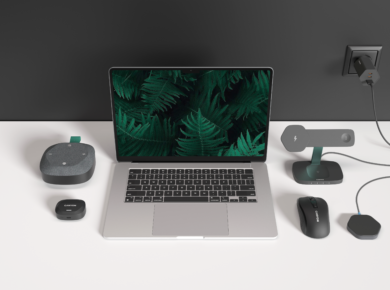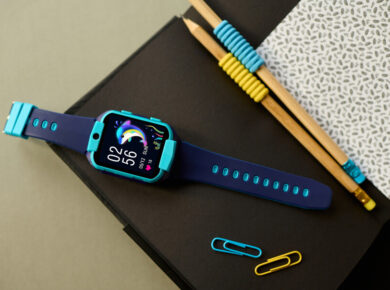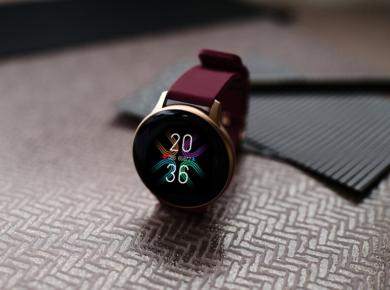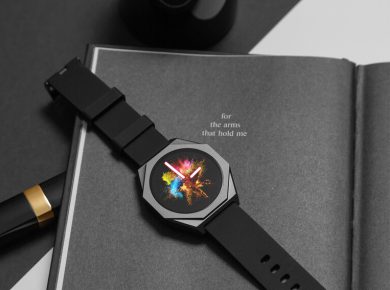Active lifestyle enthusiasts have highly appreciated smartwatches since their appearance on the market. They had key functions of smartphones, but, at the same time, eliminated the need to constantly carry them in hands.
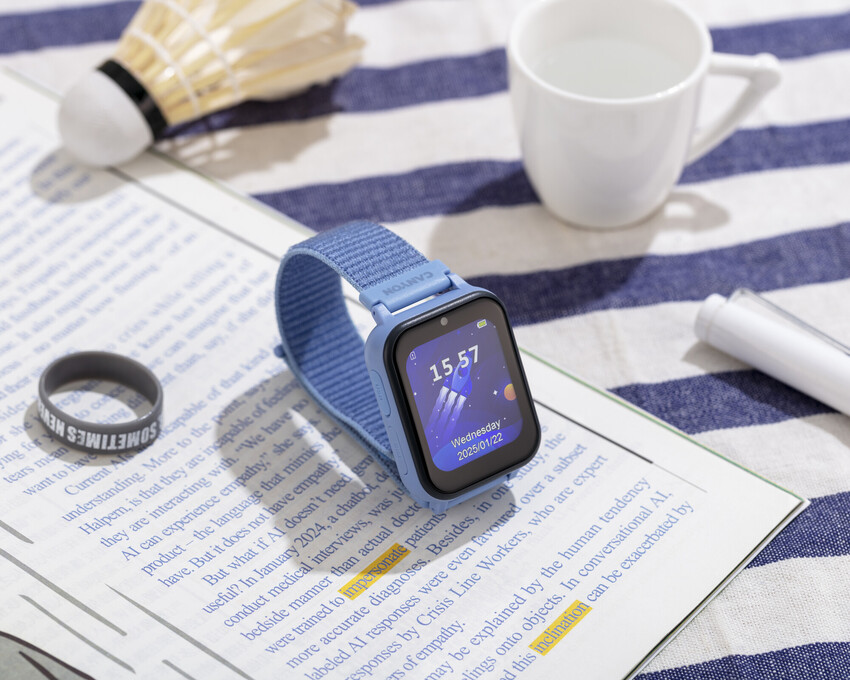
Smartwatch vs. Fitness Tracker
Jogging, cycling, hiking, and many other human activities became unthinkable without such a convenient device as the smartwatch. It is always with a person but does not require special control. Due to the versatility of these devices, they easily won a certain market share from fitness trackers and then took a dominant position. But is it worth spending money on smartwatches that cost much more than fitness trackers? In this article, you will figure out the difference between smartwatch and fitness tracker. This will help you understand how much they match in their functions in their latest versions.
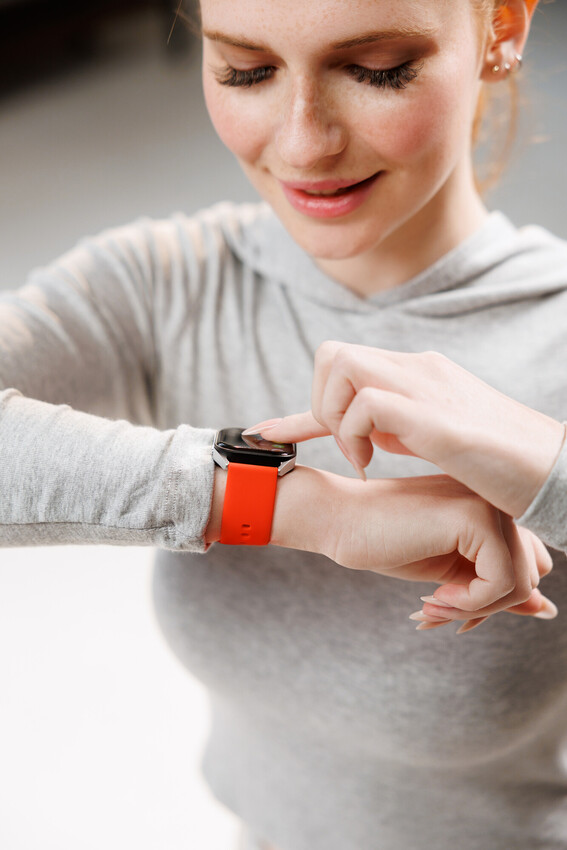
Smartwatch Chatter SW-58 by Canyon
History of Fitness Trackers: How Not to Lose the Market
Historically, fitness trackers appeared several decades earlier than smartwatches. At first, it was a humble pedometer, which gradually acquired new functions. Initially, the purpose of the fitness tracker was to combat obesity. And so, it recorded the number of steps a person took. However, with the development of technology, new features have become available in addition to step tracking:
- Measuring heart rate;
- Counting calories burned;
- Assessing sleep quality;
- Measuring stress level;
- Helping with orientation in space, etc.
They have become indispensable for marathon runners, gym-goers, and other professional or amateur athletes.
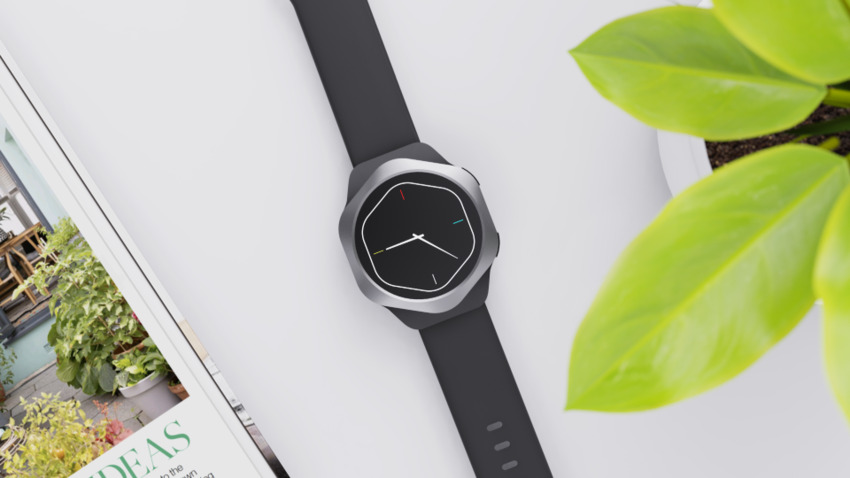
Award-winning Hexagon series by Canyon
Competition with Smartwatches
The appearance of smartwatches on the market in the early 2000s significantly shook the position of fitness trackers. Smartwatches possessed all the same functions, including blood pressure measurement, heart rate sensor, etc. They coped well with the tasks of the Health and Activity Tracker. However, in addition to this, they performed the key functions of a smartphone:
- Receive notifications for apps installed on your smartphone;
- Manage various apps, including those related to your work tasks;
- Control your music (change tracks, play, pause, and stop);
- Accept and initiate calls;
- Control smart home;
- Install cellular connectivity;
- Set an alarm for a specific time;
- Take photos and more.
Against the backdrop of these amazing capabilities of the new gadget, the demand for fitness trackers fell. However, their main advantage was still the price because they cost less than $100. Therefore, from now on, the competition between smartwatch vs fitness tracker has begun. To win back consumers, companies producing fitness trackers began integrating new features, changing the design of fitness devices, etc. They have succeeded so much in this that the differences between the first and second are becoming smaller and smaller. Today, fitness trackers have changed significantly compared to the versions available on the market in the early 2000s. They acquired:
- Detailed health and fitness reports when connected to a mobile phone;
- Large touchscreen display with a rich color palette pleasing to the sight;
- Possibility to make NFC contactless payments;
- Notifications for incoming calls or messages;
- GPS tracking.

Smart Watch Hexagon 88 by Canyon
Comparative Analysis of the Advantages of Smartwatch vs Fitness Tracker
- Battery: A fitness tracker can go for days without recharging because its batteries hold a charge well. In contrast, smartwatches require recharging every day. They perform too many functions, so the battery drains much faster. Therefore, if you are traveling to a remote place where it will be difficult to recharge devices, it is better to wear a fitness tracker.
- Savings. At first glance, it seems that it is better to buy a fitness tracker if you only need to monitor your health during sports. In this case, you will save several hundred dollars. However, if you still need some of the functions of a smartwatch, you will subsequently have to purchase another type of device. However, you can choose an intermediate option and buy a high-end fitness tracker with advanced functionality.
- Versatility. Smartwatches are highly functional devices that can replace a smartphone when traveling. Of course, this is not true for any type of smartwatch, but only for cellular models. Fitness trackers are much less versatile, especially budget models. Therefore, you can soon feel their limitations, which will provoke the purchase of a more expensive device.
The Bottom Line
Purchasing an effective wearable device is not easy since the market is overflowing with many models. They have different functionalities, costs, purposes, and designs. If your choice is a smartwatch or fitness tracker, it is better to buy a hybrid. In addition to comprehensive activity and health tracking, it provides functions for receiving calls and messages, notifications for applications, making payments, etc.. They \measure health indicators and provide valuable recommendations on improving your physical or mental state. For example, a feature that measures stress levels determines what needs to be changed to reduce it. Thus, you will receive valuable feedback on how to reduce the level of stress in your life.If you want wearable devices at more affordable prices, you can buy a basic model for up to $100. It also guarantees the accuracy of all health and activity measurements to help monitor your sports exercises. Such a fitness tracker will give you an overall view of the state of the body. With it, you will be able to assess the impact of your current activity on the body and adjust it if necessary.

